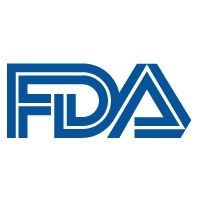Biosimilar Drugs for Psoriatic Arthritis, Other Conditions, One Step Closer to Approval
The US Food and Drug Administration's (FDA's) Arthritis Advisory Committee recently voted unanimously to recommend the approval of biosimilars to adalimumab (Humira) and etanercept (Enbrel).

The US Food and Drug Administration’s (FDA’s) Arthritis Advisory Committee recently voted unanimously to recommend the approval of biosimilars to adalimumab (Humira) and etanercept (Enbrel).
Committee members voted 26-0 in favor of ABP 501, an adalimumab biosimilar from Amgen, which is seeking indications for rheumatoid arthritis, juvenile idiopathic arthritis, psoriatic arthritis, ankylosing spondylitis, adult Crohn’s disease, adult ulcerative colitis and plaque psoriasis.
The anti-tumor necrosis factor alpha (anti-TNFa) monoclonal antibody inside ABP 501 has the same amino acid sequence as the adalimumab antibody and the biosimilar is designed to be administered at the same dosage and in the same way as AbbVie’s blockbuster medication, which is expected to generate more than $15 billion in revenue this year.
Amgen conducted 2 phase 3 studies — 1 in patients with moderate-to-severe plaque psoriasis and 1 in patients with moderate-to-severe rheumatoid arthritis — to demonstrate safety and efficacy comparable to adalimumab. ABP 501 met its primary endpoints in both tests, demonstrating clinical equivalence to adalimumab as well as comparable safety and immunogenicity.
As part of the FDA’s abbreviated licensure pathway for biosimilars, Amgen also furnished nonclinical data and an analysis of a subgroup of psoriasis patients who transitioned successfully from adalimumab to ABP 501.
Several advisory committee members expressed some doubts at the meeting that trials on adult patients with rheumatoid arthritis and plaque psoriasis support the use of ABP 501 on juvenile patients or those with irritable bowel syndrome. On the whole, however, everyone agreed that the balance of evidence supported approval.
“The agency believes that it is reasonable to extrapolate data to support a demonstration that there are no clinically meaningful differences for [the proposed indications] between ABP 501 and US-licensed Humira,” said Nikolay P. Nikolov, MD, speaking for the FDA during the meeting.
A day after the ABP 501 vote, the Arthritis Advisory Committee voted 20-0 to recommend the approval of GP2015, an etanercept biosimilar from Sandoz, which is seeking indications for rheumatoid arthritis, polyarticular juvenile idiopathic arthritis in patients aged 2 years or older, psoriatic arthritis, ankylosing spondylitis, and plaque psoriasis.
Sandoz reported in a press release that it had demonstrated the biosimilarity of GP2015 and etanercept with 4 comparative pharmacokinetic studies in 216 healthy volunteers and a safety and efficacy trial in 531 patients with chronic plaque psoriasis.
Although panel members agreed that the studies had demonstrated biosimilarity, several urged the FDA officials who will ultimately decide whether to approve GP2015 to make sure the product’s label indicate that it is a biosimilar and not a fully interchangeable drug.
Several panel members also urged that Sandoz be required to do a post-market study that would provide data on whether GP2015 and etanercept really were equivalents — from a safety and efficacy standpoint — in actual clinical practice. (Some panel members had urged the same sort of study the day before, when they recommended the approval of ABP 501.)
Such concerns stem largely from the novelty of biosimilars to antirheumatic monoclonal antibodies. Real questions remain about whether or not biosimilars are interchangeable with original medications in the way that generic drugs are interchangeable with the branded drugs they ape.
At least 1 study of patients in Denmark suggests that biosimilars can be interchanged with original medication in many patients, but not necessarily all of them. The Danish government switched all infliximab patients there to a biosimilar last year, so investigators compared all 647 affected patients 3 months before the switch, at the switch and 3 months after the switch.
“Disease activity was largely unaffected in the majority of patients 3 months after non-medical switch to biosimilar Remsima and comparable to the fluctuations observed in the 3 months prior to the switch,” the investigators wrote in an abstract they presented at the Scientific Sessions of the European League Against Rheumatism’s annual congress. “However, several patients (∼6%) stopped treatment due to [lack of effect] or [adverse events]. This warrants further investigation before such a non-medical switch can be recommended.”